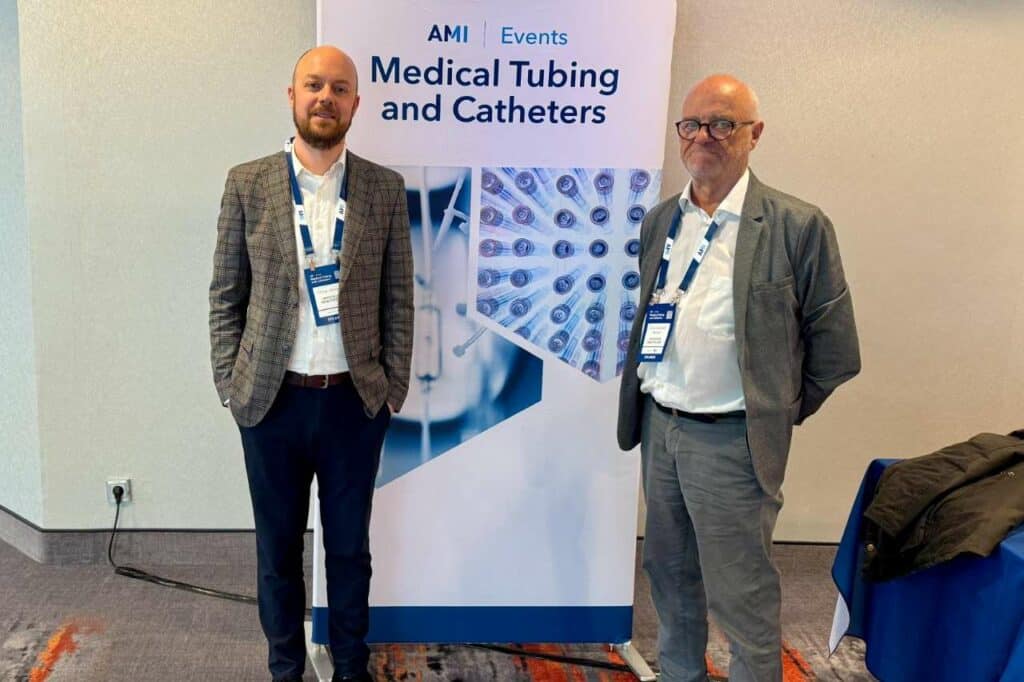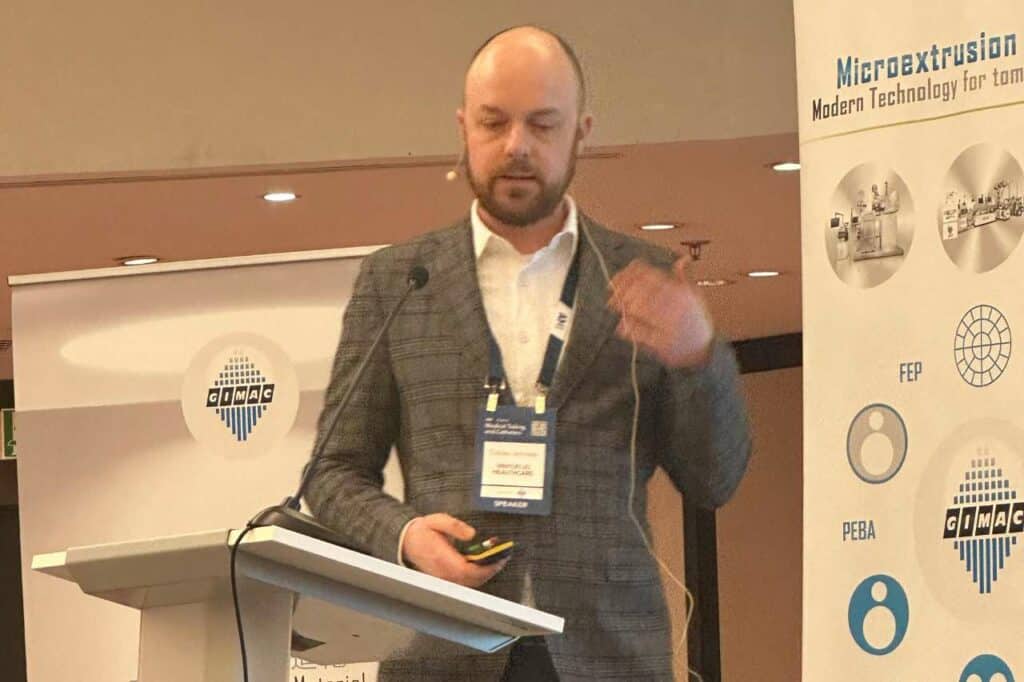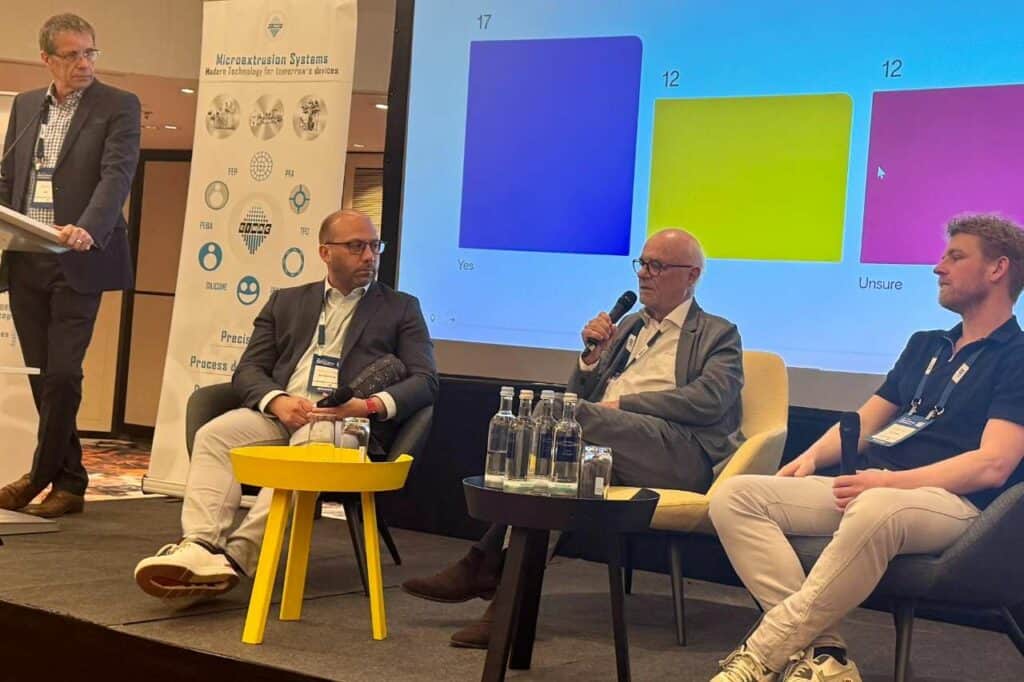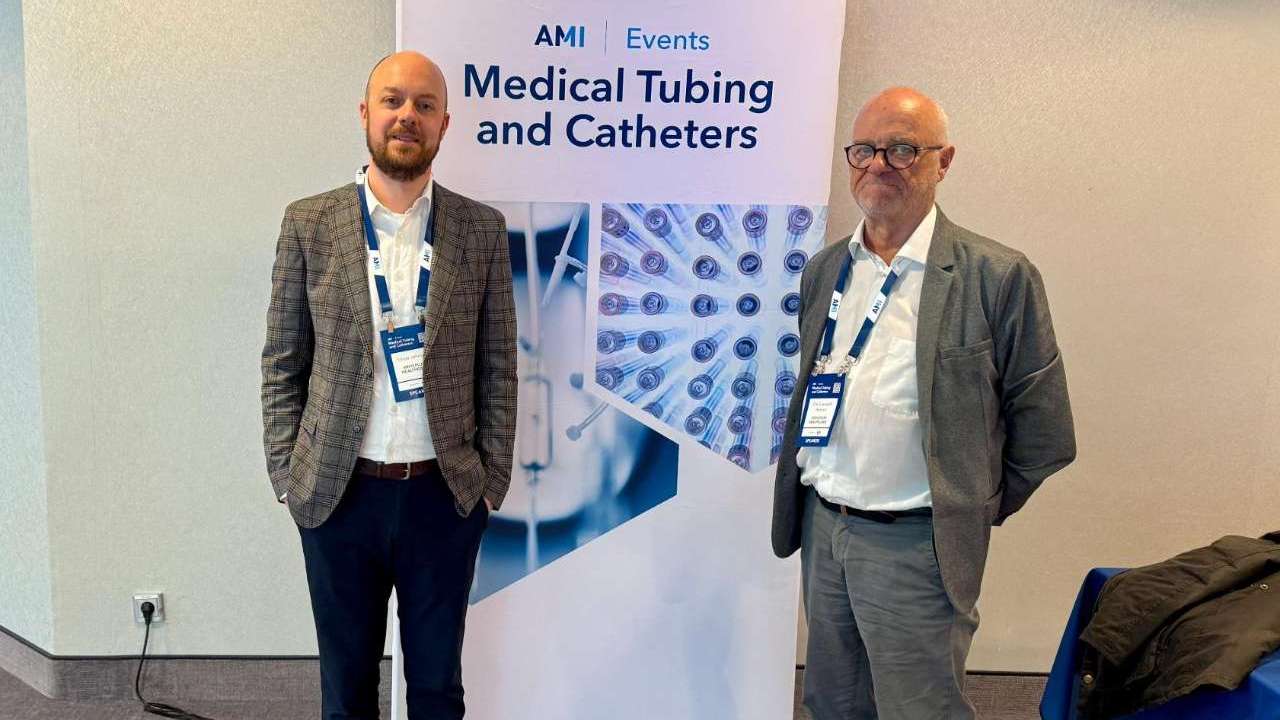At the 2025 Medical Tubing and Catheters Conference in Düsseldorf, VinylPlus Healthcare sent a clear signal: polyvinyl chloride (PVC or vinyl) leads the medical tubing market with over 50% share, is steadily growing – and is already being recycled, despite outdated perceptions suggesting otherwise.
Held on 1–2 April and attended by around 100 delegates, the conference brought together material experts, medical manufacturers, and sustainability specialists to discuss the future of medical tubing. VinylPlus Healthcare contributed both through expert panel participation and technical presentations, offering fact-based insights on the performance, safety, and recyclability of PVC.
Challenging Conservatism and False Security
In a lively panel session, VinylPlus Healthcare Project Leader Ole Grøndahl Hansen challenged the widespread notion that the medical tubing sector is driven purely by innovation. “In reality, the industry remains cautious – even conservative,” he said, citing the slow phase-out of DEHP plasticisers despite scientific concerns and an EU REACH sunset date in 2030.
He also questioned the assumption of continuous demand growth, pointing to examples like blood bags, where usage has declined in several countries due to updated medical guidelines. As hospitals adopt new monitoring technologies and face increasing environmental scrutiny, Hansen warned of potential shifts in the demand curve – especially for single-use items.
Vinyl: Still Central, Still Misunderstood
Despite its dominant position in the market, vinyl remains subject to misinformation. A live poll during the panel revealed that delegates were nearly evenly split on whether PVC-free tubing should be preferred – showing that confusion persists.
In response, Hansen reiterated vinyl’s well-documented safety record and lifecycle performance. “Vinyl is among the most thoroughly analysed materials in the sector,” he said. “Calls to replace it often overlook the risk of regrettable substitution – swapping a known material for one with far less regulatory scrutiny.”
He referenced the 2023 European Chemicals Agency (ECHA) report, which found no lifecycle evidence that PVC alternatives offer environmental benefits in the healthcare context.
Recycling in Action – Not Just Theory
VinylPlus Healthcare consultant Tobias Johnsen followed with a data-rich presentation on PVC medical recycling, directly addressing the claim that PVC cannot be recycled – a point raised just moments earlier in a talk on alternative materials. Drawing on third-party data, he demonstrated that flexible PVC retains its performance across recycling cycles and delivers measurable environmental benefits. The supporting factsheet is available here.
Johnsen presented evidence from the VinylPlus® Med programme, now part of VinylPlus Healthcare, which successfully collects and recycles non-contaminated PVC tubing, masks, and other products from hospitals across Belgium. He showed that recycled flexible PVC retains stable mechanical properties and offers significant carbon and resource savings.
“PVC is already being recycled in real-world hospital settings,” Johnsen stated. “We must base sustainability conversations on facts – not assumptions.”
Download conference proceedings.







